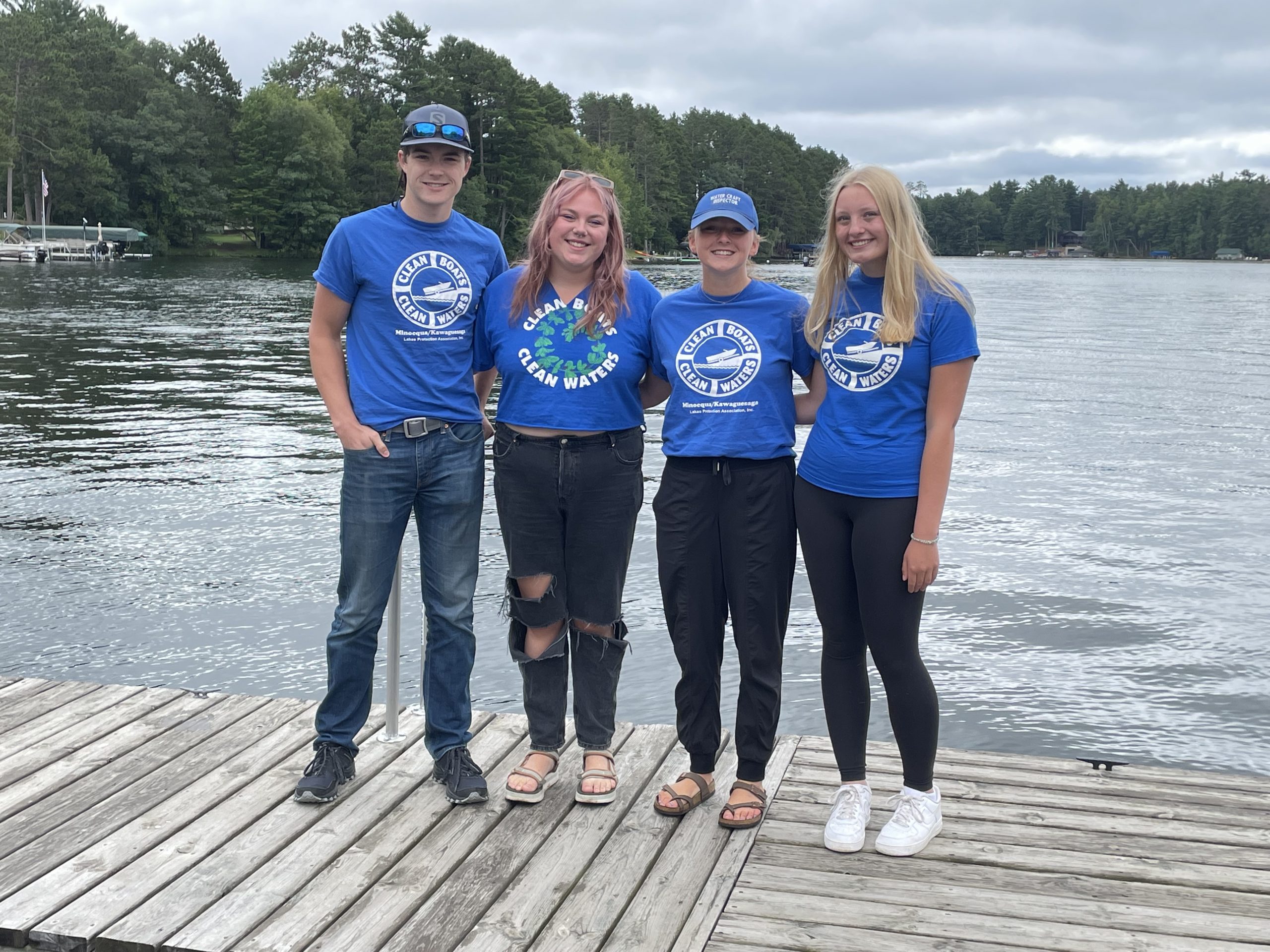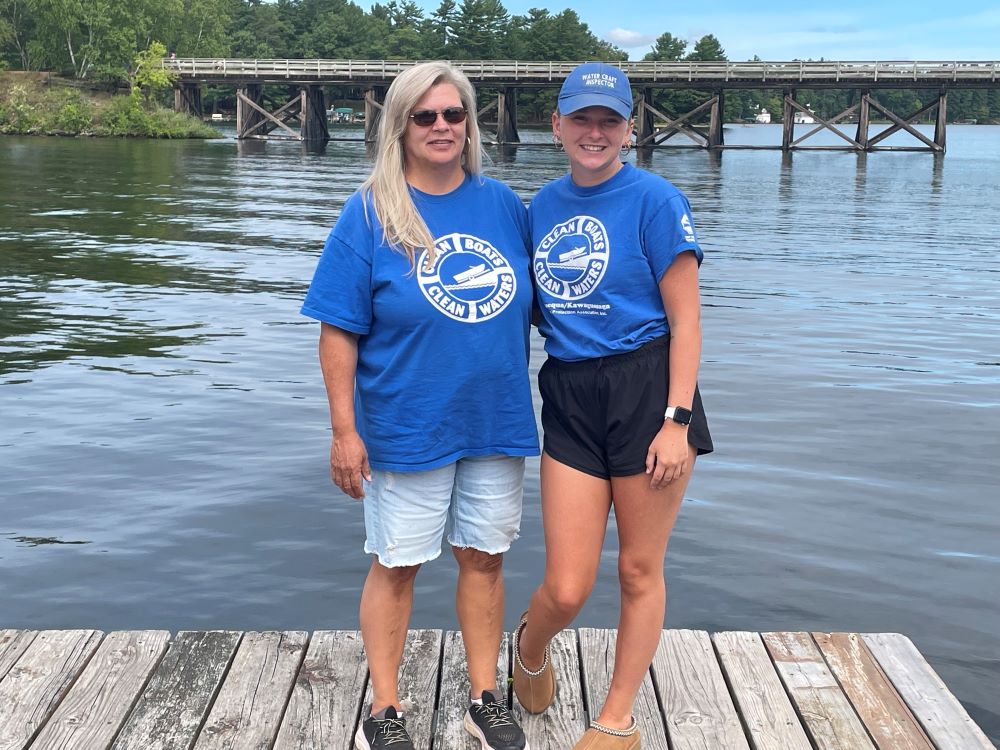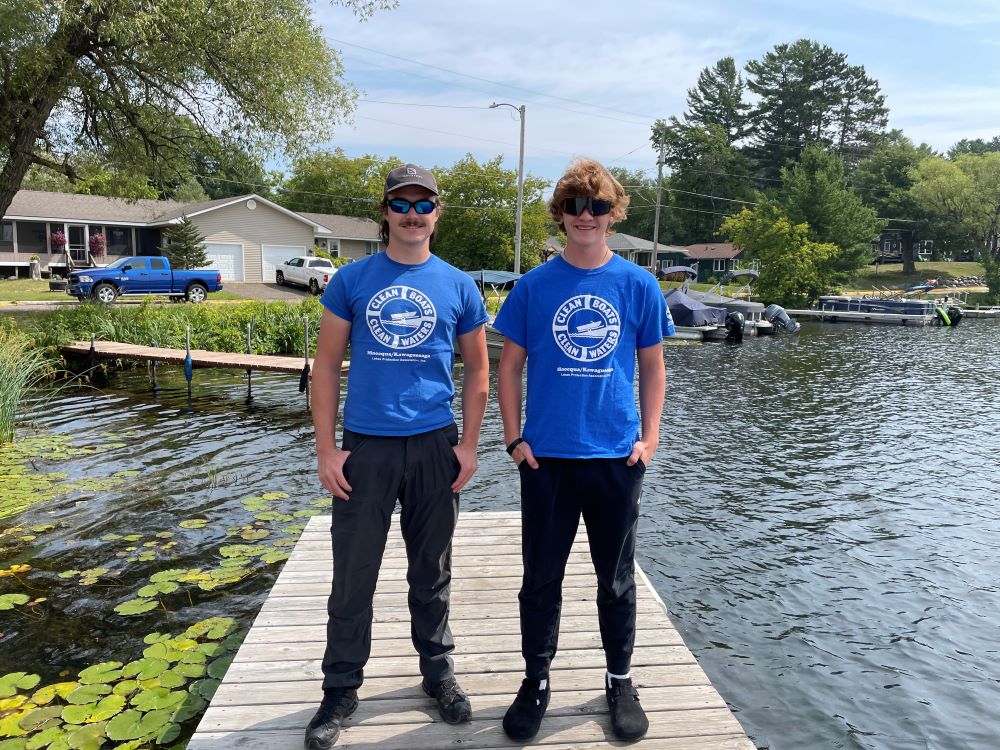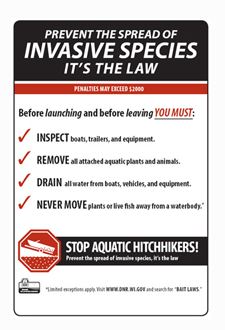Clean Boats, Clean Waters
NEED A SUMMER JOB
Clean Boats, Clean Waters CBCW Our CBCW program will begin on Memorial Day weekend. Boat Inspections, Boat Counts, and Important Boat Safety Regulations will be shared with lake users. Please give the team a “Hi Five” when you see them at the landings! *Please Note: Summer Employment* Watercraft Inspector needed for the Clean Boats, Clean Waters Program If interested, please contact Steve Beckwith.

You may have noticed Clean Boats, Clean Waters boat inspectors checking boats at a local boat landing, or maybe you are a volunteer or are interested in learning more. Clean Boats, Clean Waters includes teams of volunteers, as well as paid staff from the DNR, Sea Grant and other organizations. Boat inspectors help perform boat and trailer checks, hand out informational brochures and educate boaters on how to prevent the spread of aquatic invasive species.
The DNR maintains a statewide database, which contains tallies of information tracked at landings. The UW-Extension (UWEX) Lakes conducts trainings for new boat inspectors and coordinates the volunteer efforts. Be sure to visit the UWEX Clean Boats, Clean Waters website [exit DNR] for the handbook, forms, publications, schedule of workshops and general information about Clean Boats, Clean Waters.


Clean Boats Clean Water 2025
# Boats Inspected = 1315
Dam Road Landing = 8
Thirsty Whale Landing = 305
Schoolhouse Bay Landing = 1002
Total people contacted = 3087
Total Hours Spent = 257
Clean Boats Clean Water 2024
# Boats Inspected = 1126
Dam Road Landing = 0
Thirsty Whale Landing = 466
Schoolhouse Bay Landing = 660
Total people contacted = 2550
Total Hours Spent = 304.25
Clean Boats Clean Water 2023
# Boats Inspected = 2366
Dam Road Landing = 29
Thirsty Whale Landing = 810
Schoolhouse Bay Landing = 1527
Total people contacted = 5460
Total Hours Spent = 1006
TRANSPORT LAWS FOR BOATERS AND ANGLERS
INSPECT your boat, trailer and equipment
REMOVE any attached aquatic plants or animals (before launching, after loading and before transporting on a public highway).
DRAIN all water from boats, motors and all equipment.
NEVER MOVE live fish away from a waterbody.
DISPOSE of unwanted bait in the trash.
BUY minnows from a Wisconsin bait dealer. Use leftover minnows only under certain conditions.*
*You may take leftover minnows away from any state water and use them again on that same water. You may use leftover minnows on other waters only if no lake or river water, or other fish were added to their container (more information below).
BAIT LAWS FOR BOATERS AND ANGLERS
The following new laws apply to all anglers and boaters in Wisconsin
You must drain all water from boats, containers and fishing equipment when leaving any state waters, banks or shores or entering Wisconsin over land.
This does not apply to any drinking water or up to two gallons of water being used to hold minnows that can be legally transported.
You may not transport any live fish or live fish eggs away from any state waters. There is an exception for minnows obtained from a Wisconsin bait dealer. These minnows may be transported away live and used again:
on the same water, or on any other waters if no lake or river water, or other fish were added to their container.
You may not use dead fish, fish eggs, or fish parts as bait. There are three exceptions:
you may use dead fish, fish eggs or fish parts as bait on any waters if they were preserved by a method that does not require freezing or refrigeration, or you may use unpreserved or just frozen dead fish, fish eggs or fish parts as bait on the water from which they were collected or on Lake Michigan or Green Bay (and connecting waters upstream to the first barrier impassable to fish), or you may use live minnows that die during a fishing trip during that fishing trip (they may not be used on later trips unless you meet the two conditions above).
You may not possess or use minnows for bait that are obtained outside of Wisconsin. This does not apply if the minnows were imported under a Wisconsin Department of Agriculture, Trade and Consumer Protection (DATCP) permit, or if they were obtained from Iowa or Minnesota and are being used only “between the tracks” on the Mississippi River.
LAWS FOR SEAPLANE OPERATORS
INSPECT your seaplane and equipment
REMOVE any attached aquatic plants or animals (before landing or taking off).
DRAIN all water from seaplane or equipment.
LAWS FOR LANDOWNERS, NURSERIES, AND WATER GARDENERS
It’s illegal to transport, import, possess, transfer, sell and introduce “Prohibited Species” without a permit
It’s illegal to transport, import, transfer, sell and introduce “Restricted Species” without a permit, but people may possess restricted species with the exception of fish and crayfish.

